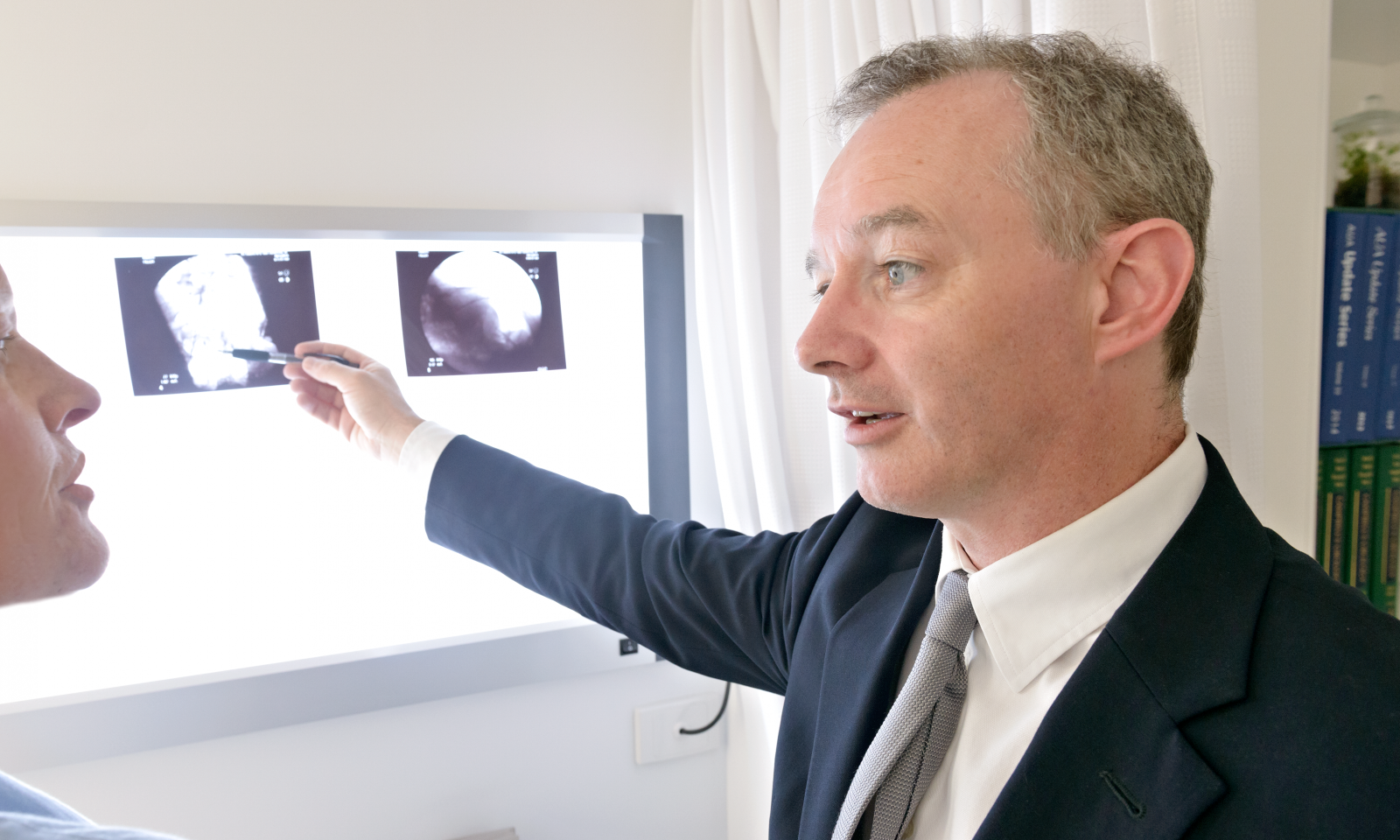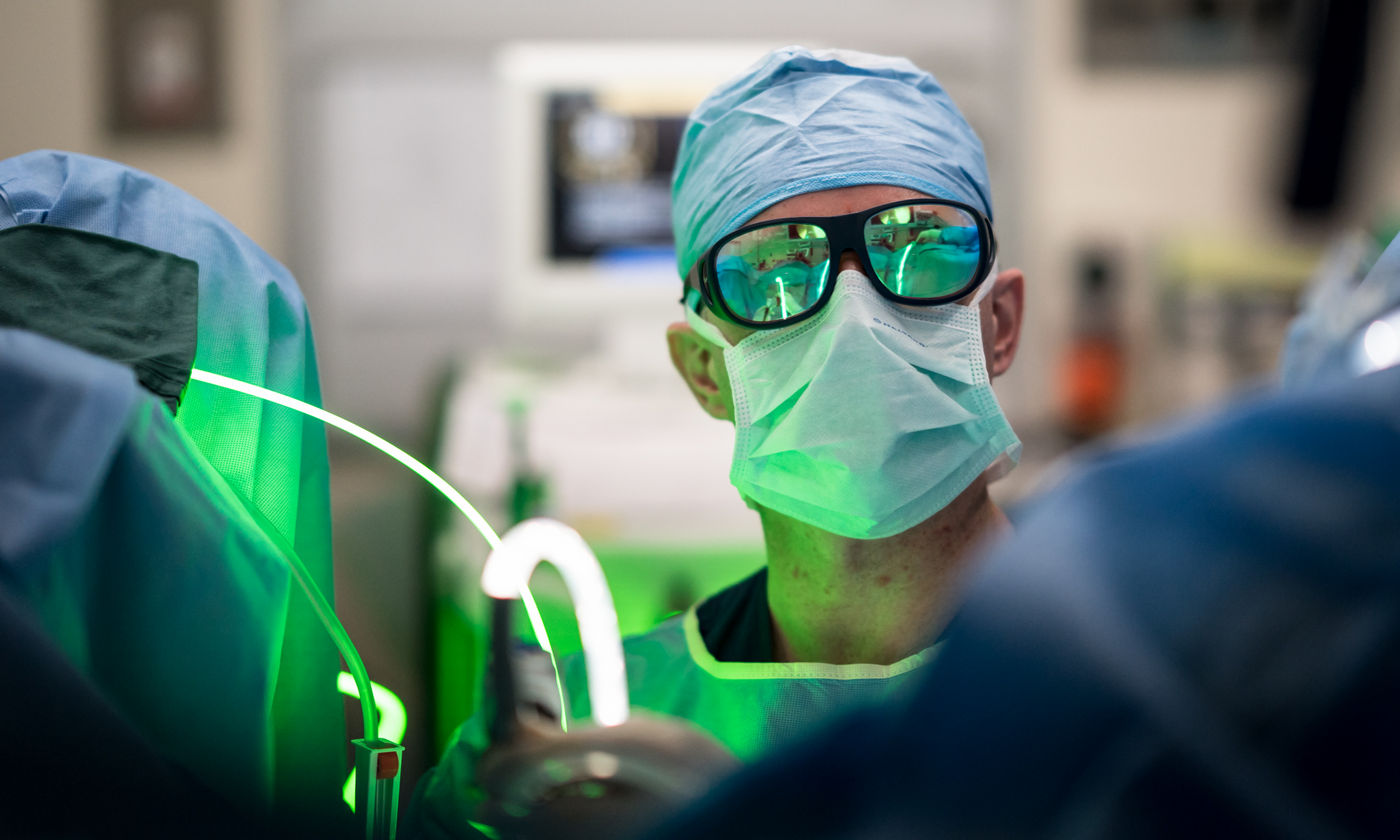general urological services
Blood in the urine may be obvious and not obvious (detected on urine test only). Either situation may indicate a problem in the urinary tract, such as kidney disease, cancer, stone or infection. There are set protocols for the investigation of these problems as set by a number of international urological societies.
These protocols usually require x-rays to be taken, blood and urine tests to be performed and an endoscopic inspection of the bladder (cystoscopy) to be undertaken. The practice provides the full range of investigations and necessary treatments.
Stones can cause severe pain but may sometimes be silent till the kidney is damaged. The practice offers emergency evaluation and treatment of active stone problems as well as immediate management of potential stone problems. CT scans and urgent surgery can be done to relieve pain and obstruction from stones. The practice offers a wide range of minimally invasive procedures to treat stone disease including, ESWL, Laser lithotripsy, percutaneous kidney surgery and endoscopic kidney surgery. The practice also offers long term management in the prevention of urinary stones.
The practice subspecializes in urological cancer treatment. A multi-disciplinary approach is taken to the tailoring
of individual cancer treatments and involves a close working relationship with medical oncologists, radiation oncologists, pathologists and radiologists to provide a complete approach to cancer treatment. Surgical treatment options are kept minimally invasive if at all possible.
Please refer to Female Incontincence
woman's health
Many women experience pelvic organ prolapse, particularly after childbirth. It is not uncommon for women with pelvic organ prolapse to also experience urinary incontinence.
The problem occurs because the pelvic floor has been injured during the process of childbirth.
There are many procedures available to restore the function of the pelvic floor. Most of these procedures are performed vaginally, but some are performed abdominally by open or key-hole surgery. Some repairs involve sutures only and others involve the laying of tissue or mesh.
Many women experience recurrent urinary tract infections. There are set protocols for the investigation and treatment of this problem. These protocols usually require x-rays to be taken, urine tests to be performed and occasionally an endoscopic inspection of the bladder (cystoscopy) to be undertaken. The practice provides the full range of investigations and necessary treatments.
specialised services
Laparoscopic surgery, also called minimally invasive surgery (MIS), keyhole surgery, or pinhole surgery is a modern surgical technique in which operations in the abdomen are performed through small incisions (usually 0.5–1.5cm).
The key element in laparoscopic surgery is the use of a laparoscope: a telescopic rod lens system, that is usually connected to a video camera. Also attached is a fiber optic cable system connected to a light source to illuminate the operative field. The abdomen is usually insufflated with carbon dioxide gas to create a working and viewing space. The gas used is carbon dioxide, as it can safely be removed by the respiratory system if absorbed through the tissues.
The main advantage to the patient of laparoscopic surgery over open procedure is that a smaller incision is required, thereby causing less pain and a thus quicker recovery.
A number of operations can be performed by key-hole surgery.
These include:
— Laparoscopic Radical Nephrectomy
— Laparoscopic Radical Partial Nephrectomy
— Laparoscopic Pyeloplasty
— Laparoscopic Adrenalectomy
— Laparoscopic Radical Prostatectomy
— Laparoscopic Varicocoelectomy
— Robotic Prostatectomy
Treatment strategies include accurate diagnosis of the stone problem, assessment of potential complications that are related to stones, specific procedures to removed or dissolve stones and long term preventive measures to avoid stone recurrence.
A procedure to remove a stone would be indicated in the following situations:
— a stone that is causing persistent pain
— a stone that is causing a complication such as
obstruction to the kidney, which may lead to kidney damage, infection and bleeding
— a stone that is not likely to come out by it’s own and has potential to grow in size and cause complications
Specific procedures for stones:
— Extra corpal shock wave lithotripsy (ESWL)
— Endoscopy and Laser surgery
— Percutaneous surgery (PCNL)
— Laparoscopy surgery for stone
Urodynamics is a specialised study that is undertaken to help reach a diagnosis in patients with voiding difficulty
or urinary incontinence. It involves the filling of the bladder through a catheter and the recording of the bladder response to filling. It is performed as an outpatient in a specialiased urodynamics facility with the aid of x-rays. A trained specialist and a nurse perform the procedure. It normally takes an hour to perform and afterwards patients are able to drive them selves home, if they so wish.
men's health
The practice is aware of the rising need for specialised therapy in the area of men’s health. We offer non-invasive evaluation, medical and surgical management of various condition affecting men’s health.
Prostate conditions can affect a man at all ages although it is more common in the elderly man. The practice
offers evaluation for prostate infection, inflammation, enlargement, cancer and elevated blood PSA (prostate specific antigen) levels. The practice has one of the most comprehensive ranges of treatment options for men with prostate enlargement including medical treatment, radiofrequency ablation, greenlight laser prostate vaporisation, TURP, Bipolar TURP and open removal. We also offer a comprehensive range of treatment options
for prostate cancer including brachytherapy, radiation treatment, open surgery, laparoscopic surgery and robotic surgery.
We provide day surgery circumcision for adults using the ring-barking technique which results in the best cosmetic appearance.
We provide day surgery vasectomy for adults using the no scalpel technique which results in the best cosmetic appearance. Please refer to Vasectomy Reversal
There various causes of erectile dysfunction. We attempt to ellicit the cause and provide targeted therapy such as medical therapy (pills), injection of prostaglandin, vacum devices and penile prosthesis.
Premature ejaculation is now believed to be both psychological as well as physiological abnormalities. We offer sexual counselling and education in stop-start and sensate focusing techniques. Coupled with application of local anaesthesia and medications (SSRIs), we can achieve a significant increase in intravaginal latency time.
Up to 50 percent of fertility problems in couples involve the male partner.
The most common cause of male subfertility is varicocele. We offer laparoscopic ligation of varicocele which is minimally invasive and done as a day procedure. In addition, we also perform microsurgical varicocele ligation as well as embolization of varicocele.
specialised clinics
Unfortunately the genito-urinary system is prone to cancer formation. Common cancers of the genito-urinary system include prostate cancer, bladder cancer, kidney cancer, testicular cancer, and penile cancer. We offer a complete range of investigations to analyse these problems, including the latest screening, and imaging techniques.
Many of the best outcomes in cancer treatment involve multi-disciplinary approaches incorporating the expertise of other healthcare professionals including surgeons, medical oncologists and radiation oncologists. This group approach, as well as the latest technologies and treatments are employed in our practice to achieve the best outcomes.
To make an appointment for these clinics please phone our central practice number on (07) 3367 1608.




